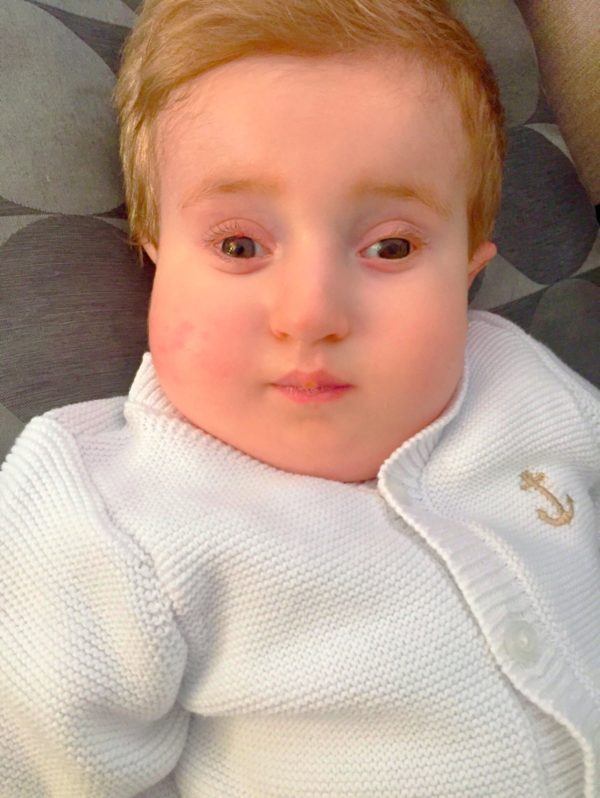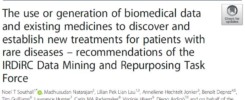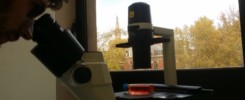Already implemented for several patients, Apteeus’ technology has just identified a drug that could improve the health of Noé, 18-month-old from Le Mans.
Noé’s parents contacted Dr. Terence Beghyn in January of this year and explained that Noé had just been diagnosed with a D-Bifunctional protein deficiency, understand an enzyme that degrades very long chain fatty acids.
This is a very rare genetic disease affecting brain development. Desperate about the lack of treatment, Noé’s parents noticed the absence of research to find a cure for this disease and decided to create an association to promote research (“La Marche de Noé”).
It is in these situations that Apteeus proposes to implement its well-established personalized research process. In April, a biopsy is performed on noé’s skin and sent to Lille. Apteeus extracted the dermal cells called fibroblasts. Thanks to a technology based on mass spectrometry, Camille Moreau, project manager at Apteeus, demonstrated in vitro the accumulation of very long fatty acids that cause symptoms and tested the effect of more than 1800 active ingredients of drugs to select only one, this was in September 2019, less than 6 months after the start of the work, “it is our objective to reconcile the time of research with the one of medicine”, comments Terence Beghyn, CEO of Apteeus.
This drug, used for many years in a completely different indication, is able to reach the brain where it should reduce the accumulation of very long fatty acids. In any case, this is what Noé and his parents expect, as well as the team of Dr. Dobbelaere, coordinator of the Hereditary Metabolic Diseases Reference Centre at the CHRU de Lille, who has taken care of the little patient in his department. After an analysis of the benefit-risk ratio regarding its use, the drug has been administered to Noé for compassionate use. “In a couple of months, we should know if the effect observed in vitro results in an improvement in the health status of Noé,” says Dr. Dobbelaere.
APTEEUS is a biotech company specialized in personalized medicine. Founded by two pharmacists, Professor Benoit Deprez and Dr. Terence Beghyn, the company’s CEO, it is based on the campus of the Institut Pasteur de Lille. APTEEUS offers programs to research therapeutic solutions among the drugs already available in the field of rare genetic diseases (apteeus.fr).
The Hereditary Metabolism Diseases Reference Centre is part of the French network set up under the government’s Rare Diseases plans. Dr. Dries Dobbelaere and his team are in charge of the patients from Les Hauts de France whom they welcome into the paediatric service of the Jeanne de Flandre Hospital. Dr. Dobbelaere’s department is part of the European MetabERN network.
Contacts :
Association « La Marche de Noé »
Campus Institut Pasteur de Lille,
1 rue du Professeur Calmette
59000 Lille – France
Centre de référence Maladies Héréditaires du Métabolisme
Centre de référence des maladies héréditaires du métabolisme
Coordonnateur : Dr Dries DOBBELAERE
CHRU de Lille Hôpital Jeanne-de-Flandre
Clinique de Pédiatrie – Unité des maladies héréditaires du métabolisme
Avenue Eugène Avinée
59037 Lille Cedex
33 (0)3 20 44 41 49


